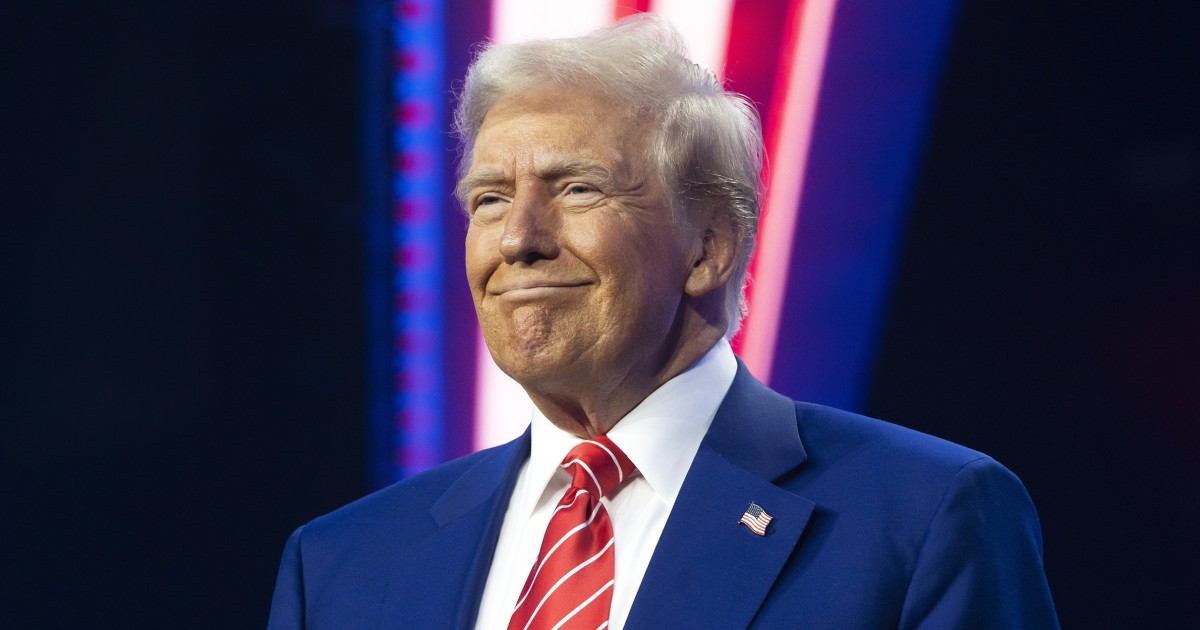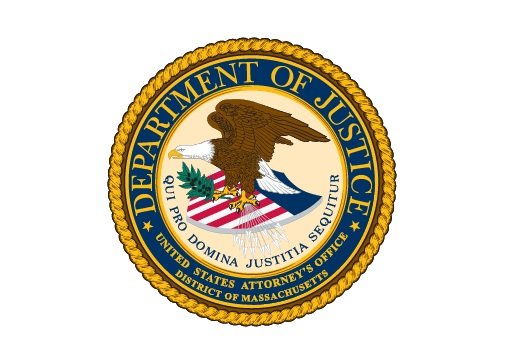Crypto
Mastering Cryptocurrency: Future of Trading

Mastering Cryptocurrency: Future of Trading
In the global financial ecosystem, there has been no subject more debated, celebrated, and at times, controversial than cryptocurrency. As we stand at the cusp of a new era in trading, it’s apparent that digital assets, especially cryptocurrencies, will play a pivotal role in shaping the future of trading. With a blend of advanced technology, decentralization, and seemingly limitless potential, cryptocurrencies are redefining the boundaries of the trading world.
They offer traders new opportunities for diversification, risk management, and profit maximization. Furthermore, with the integration of smart contracts and interoperable platforms, seamless and automated trade executions are becoming more prevalent. As adoption grows, understanding these digital assets will be essential for any forward-thinking trader.
The Rise of Cryptocurrency in the Trading World.
Cryptocurrencies, spearheaded by Bitcoin, introduced the world to a decentralized financial system that operates independently of central banks. This decentralization offered a promise: transactions that are faster, cheaper, and free from third-party interventions. As more and more investors and institutions began realizing the potential of these digital assets, trading platforms started evolving to cater to the growing demand.
This burgeoning interest has led to an ever-expanding ecosystem where the digital currency market is constantly evolving, with new tokens and blockchain projects emerging regularly. The growth of trading platforms has made it easier for everyday investors to access these markets, with features designed to cater to users of all skill levels.
The advanced technology underlying these platforms enables the execution of trades at lightning speeds, with enhanced security features to protect users’ investments. Moreover, the platforms provide educational resources, analytical tools, and up-to-the-minute market news to empower traders to make informed decisions.
As cryptocurrencies continue to gain traction, these platforms become vital hubs for economic activity, offering a window into the potential future of finance where decentralization is the cornerstone.
Understanding Crypto CFDs.
One of the popular trading instruments emerging in this realm is the crypto CFD (Contract for Difference). Unlike traditional cryptocurrency trading, where one buys and sells the actual digital coins, CFDs allow traders to speculate on the price movements of cryptocurrencies without owning them. Essentially, traders are betting on price differences, which can be both an advantage (through leveraging) and a risk, due to the volatile nature of cryptocurrencies.
This model offers flexibility, enabling traders to capitalize on price fluctuations in both rising and falling markets. Additionally, crypto CFDs often come with advanced trading tools and analytics, helping traders make informed decisions. However, the inherent volatility demands a strategic approach, emphasizing research and risk management.
Peeking into the Future: Bitcoin.
As the cryptocurrency space matures, there’s an increasing interest in derivatives, which allow traders to hedge risks or speculate on future prices. Their approach to decentralized derivatives, particularly in relation to Bitcoin, offers a glimpse into the future of crypto trading.
With platforms enabling access to these financial instruments, traders are now equipped to strategize beyond mere buying and holding. Decentralized derivatives, like the ones available for Bitcoin and other cryptocurrencies, afford traders the ability to manage risk through instruments that were previously only available in traditional markets. These include futures contracts, options, and swaps, all functioning without the need for an intermediary.
This movement towards decentralized finance (DeFi) derivatives is a step towards a more integrated financial ecosystem that leverages blockchain technology’s transparency and security. By utilizing these instruments, traders can protect their portfolios against volatility, a common occurrence in the crypto markets, while also positioning themselves to profit from market movements in either direction.
The strategic use of derivatives requires an understanding of complex financial concepts and the ability to forecast market trends accurately. It also underscores the importance of risk management strategies in trading, ensuring that traders do not expose themselves to undue risk in pursuit of potential rewards.
This evolution towards sophisticated trading mechanisms is part of a larger trend where digital innovation is transforming the traditional landscape, offering more tools and opportunities for traders. As these tools become more mainstream, they are likely to become critical components of every crypto trader’s strategy.
The Broader Implications.
The rise of platforms like indicates a broader shift in the trading world. Traders are no longer bound by the limitations of traditional financial systems. Decentralized platforms, complemented by instruments like crypto CFDs, are making trading more accessible, transparent, and democratic.
Furthermore, mastering cryptocurrency trading now involves understanding not just the digital assets but also the platforms and tools available. It’s a blend of technological proficiency, market insight, and strategic foresight.
As traders adopt platforms, they step into an environment where transactions are immutable and executed in real-time on the blockchain, which significantly reduces the likelihood of fraud and increases the speed of trades. This has democratized the trading landscape, allowing individuals to engage in direct peer-to-peer transactions without the need for a central authority.
These platforms often incorporate advanced trading features, including algorithmic trading bots, automated portfolio management, and predictive analytics powered by artificial intelligence. As a result, traders must not only be well-versed in market analysis but also in the use of these advanced tools to maintain competitiveness.
The progression toward these decentralized and sophisticated trading venues represents a paradigm shift. Success in this arena is no longer solely about financial acumen; it’s increasingly about the ability to merge technical skills with deep market understanding and a strategic approach to trading. Whether it’s leveraging crypto CFDs for market movements or utilizing DeFi protocols for lending and borrowing, traders must navigate these waters with a blend of caution and informed decisiveness.
Conclusion:
As we peek into the future of trading, it’s evident that mastering cryptocurrency will be crucial. The realms of decentralized finance, combined with advanced trading instruments like crypto CFDs and platforms, are painting a promising picture. Moreover, as blockchain technology continues to advance, we can anticipate even more sophisticated tools and platforms to emerge.
These innovations will cater to the needs of both novice and experienced traders, offering enhanced security, transparency, and efficiency. The rapid integration of artificial intelligence and machine learning in trading algorithms will further revolutionize the way decisions are made. For traders, the future seems to be not just about adapting but also about innovating and pioneering new paths in the ever-evolving world of cryptocurrency trading.
Other articles that may interest you…

Crypto
SEC Forms Task Force to Establish Clearer Crypto Regulations – Regulation Bitcoin News

Crypto
Trump’s new meme coins have MAGA crypto bros up in arms

Happy Tuesday! Here’s your Tech Drop, my weekly compilation of the past week’s top stories from the intersection of technology and politics.
Trump meme coins cause a rift in MAGA world
Cryptocurrency enthusiasts are not happy about Donald and Melania Trump’s new “meme coins” — essentially, glorified trading cards. The digital tokens seem like a perfect vessel for anyone, including foreign governments, to funnel money to the Trump family. That’s one reason why some experts have said the ventures — launched within days of Trump’s inauguration — are ripe for blatant corruption.
And even some of Trump’s biggest fans are bemoaning the move. The Wall Street Journal published an article that quotes Trump-supporting crypto bros who are worried that this move will delegitimize the industry. On Monday, the Rev. Lorenzo Sewell, the pastor who gave the benediction at Trump’s swearing-in, announced that he also has launched a meme coin. Probably not helping with that whole legitimacy thing.
Read more at The Wall Street Journal.
TikTok’s legal limbo
Trump’s executive order requiring the postponement of the TikTok ban, which was set to take effect in the U.S. this week, appears to have saved the app for now. At least, that’s what Trump and the app’s owners want us to think.
But Business Insider published an article raising questions about Trump’s authority to single-handedly overrule a law that received overwhelming bipartisan support in Congress and was unanimously upheld by the Supreme Court.
Read more at Business Insider.
Creepy ‘surveillance pricing’
In one of its last acts during the Biden administration, the Federal Trade Commission and its then-chair, Lina Khan, revealed the initial findings of the agency’s “surveillance pricing” market study. The report shows how companies can manipulate pricing based on personal data. According to the FTC, “details like a person’s precise location or browser history can be frequently used to target individual consumers with different prices for the same goods and services.”
Read more at the FTC.
Kristi Noem’s concerning misinfo plans
South Dakota Gov. Kristi Noem, whom Trump has nominated to lead the Department of Homeland Security, says she wants to shut down the department’s efforts at fighting foreign actors’ misinformation campaigns targeting Americans, effectively saying she wants to leave Americans vulnerable to manipulation.
Read more at The ReidOut Blog.
Biden’s FCC chair warns about Trump
On her way out the door, outgoing Federal Communication Commission Chair Jessica Rosenworcel warned about Trump’s efforts to suppress free speech and press freedoms. In a post last week, I wrote about the statement she released while dismissing multiple complaints from activist groups seeking to punish news outlets for coverage they didn’t like.
Rosenworcel compared Trump’s attacks on the First Amendment to actions taken by Presidents Richard Nixon and John Adams, and she also cited his push to “revoke licenses for broadcast television stations because he disagrees with their content and coverage” — noting that the FCC “has a duty to respect the Constitution.”
Read more at The ReidOut Blog.
Bigwigs snicker at Sewell’s remarks
The aforementioned pastor, Sewell, has garnered criticism — including from MSNBC’s Joy Reid — for his inaugural benediction, which borrowed from the Rev. Martin Luther King Jr.’s “I Have a Dream” speech and relied on what seemed like an overdone Black preacher affect. One thing I noted? Google CEO Sundar Pichai and Cantor Fitzgerald CEO Howard Lutnick seemingly found the performance pretty funny as they watched and snickered in the background.
To me, the sight — of MAGA-aligned elites giggling during a King-inspired performance on MLK Day — epitomized some of the disrespect that Black people have come to expect from Trump and his movement.
A far-right influencer speaks … gibberish
Far-right influencer Curtis Yarvin — who has pushed racist pseudoscience, promoted the idea of dictatorial leadership and been name-checked by JD Vance — gave an interview to The New York Times recently. The interview, in which Yarvin explains his belief that the Civil War didn’t improve anyone’s lives — including enslaved people’s — is a perfect example of how pseudo-intellectual jargon and obfuscation can be used to mask bigotry.
Read more at The New York Times.
Crypto
Trump's Executive Actions Signal a New Era for Cryptocurrency Regulation | PYMNTS.com

President-elect Donald Trump is reportedly planning to use his executive authority to support cryptocurrency companies and promote broader digital asset adoption during the early days of his administration, according to Reuters. This initiative marks a sharp departure from the regulatory approach under President Joe Biden’s administration, which took stringent measures to address fraud and money laundering in the crypto sector.
Executive Orders to Signal Crypto Support
Trump is expected to issue an executive order establishing a cryptocurrency advisory council, a proposal he initially suggested in July, as reported by Reuters. Two sources familiar with the discussions noted that this council could include up to 20 members tasked with advising the government on creating crypto-friendly policies. Bloomberg News was the first to report the plan to establish such a council.
Additionally, Trump’s team has reportedly discussed reversing specific regulatory measures that have posed challenges for crypto companies. According to Reuters, one potential target is the 2022 Securities and Exchange Commission (SEC) accounting guidance known as “SAB 121,” which has been criticized for increasing costs for companies, particularly banks, attempting to hold cryptocurrencies for third parties. This action could alleviate financial burdens and facilitate greater participation in the crypto market.
Related: FTC Raises Antitrust Concerns Over Big Tech’s AI Partnerships
Controversial “Operation Choke Point 2.0” in Focus
Another area of focus for the incoming administration is addressing concerns raised by cryptocurrency executives about “Operation Choke Point 2.0.” This term, used by industry insiders, describes what they perceive as a coordinated effort by bank regulators to restrict crypto companies’ access to traditional financial services. While bank regulators have denied the existence of such an initiative, sources cited by Reuters suggest that Trump plans to issue an executive order to halt these practices.
Broader Implications for the Crypto Sector
If implemented, these policy changes could significantly impact the cryptocurrency industry by fostering a more supportive regulatory environment. Experts in both the regulatory and crypto spaces told Reuters that such actions might accelerate the mainstream adoption of digital assets, signaling a new era for the sector under the Trump administration.
This approach stands in stark contrast to the policies of the Biden administration, which pursued legal action against major cryptocurrency exchanges, including Coinbase, Binance, and Kraken, in efforts to combat illicit activities and safeguard consumers.
Source: Reuters
-
/cdn.vox-cdn.com/uploads/chorus_asset/file/25826211/lorealcellbioprint.jpg)
/cdn.vox-cdn.com/uploads/chorus_asset/file/25826211/lorealcellbioprint.jpg) Technology1 week ago
Technology1 week agoL’Oréal’s new skincare gadget told me I should try retinol
-
/cdn.vox-cdn.com/uploads/chorus_asset/file/25832751/2192581677.jpg)
/cdn.vox-cdn.com/uploads/chorus_asset/file/25832751/2192581677.jpg) Technology7 days ago
Technology7 days agoSuper Bowl LIX will stream for free on Tubi
-

 Business1 week ago
Business1 week agoWhy TikTok Users Are Downloading ‘Red Note,’ the Chinese App
-
/cdn.vox-cdn.com/uploads/chorus_asset/file/25835602/Switch_DonkeyKongCountryReturnsHD_scrn_19.png)
/cdn.vox-cdn.com/uploads/chorus_asset/file/25835602/Switch_DonkeyKongCountryReturnsHD_scrn_19.png) Technology5 days ago
Technology5 days agoNintendo omits original Donkey Kong Country Returns team from the remaster’s credits
-

 Culture4 days ago
Culture4 days agoAmerican men can’t win Olympic cross-country skiing medals — or can they?
-
/cdn.vox-cdn.com/uploads/chorus_asset/file/24774110/STK156_Instagram_threads_1.jpg)
/cdn.vox-cdn.com/uploads/chorus_asset/file/24774110/STK156_Instagram_threads_1.jpg) Technology1 week ago
Technology1 week agoMeta is already working on Community Notes for Threads
-

 Culture2 days ago
Culture2 days agoBook Review: ‘Somewhere Toward Freedom,’ by Bennett Parten
-

 Politics5 days ago
Politics5 days agoU.S. Reveals Once-Secret Support for Ukraine’s Drone Industry

















